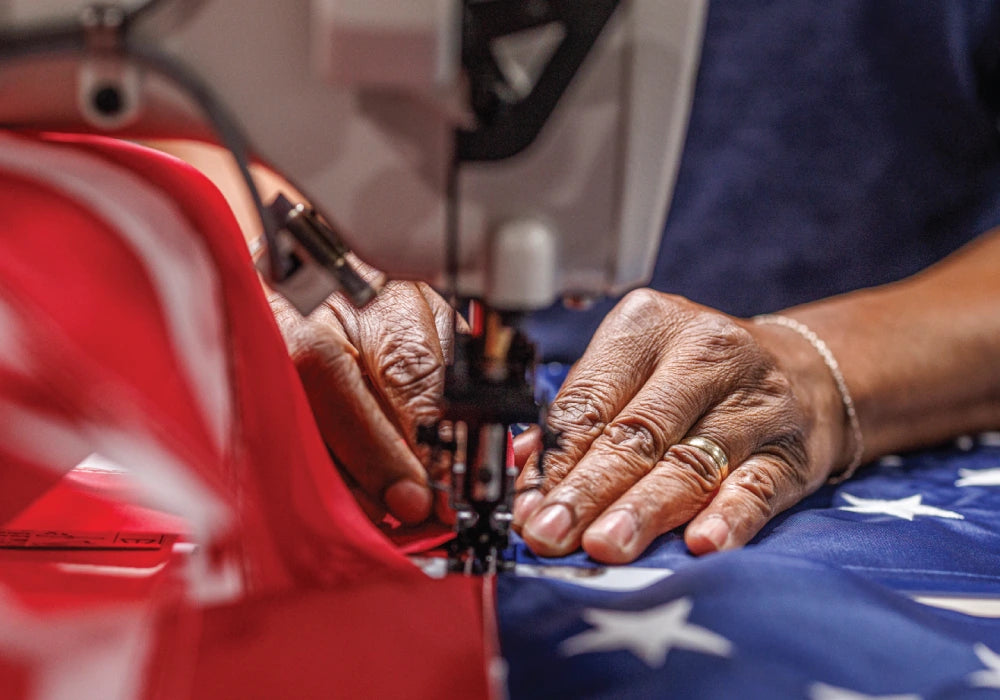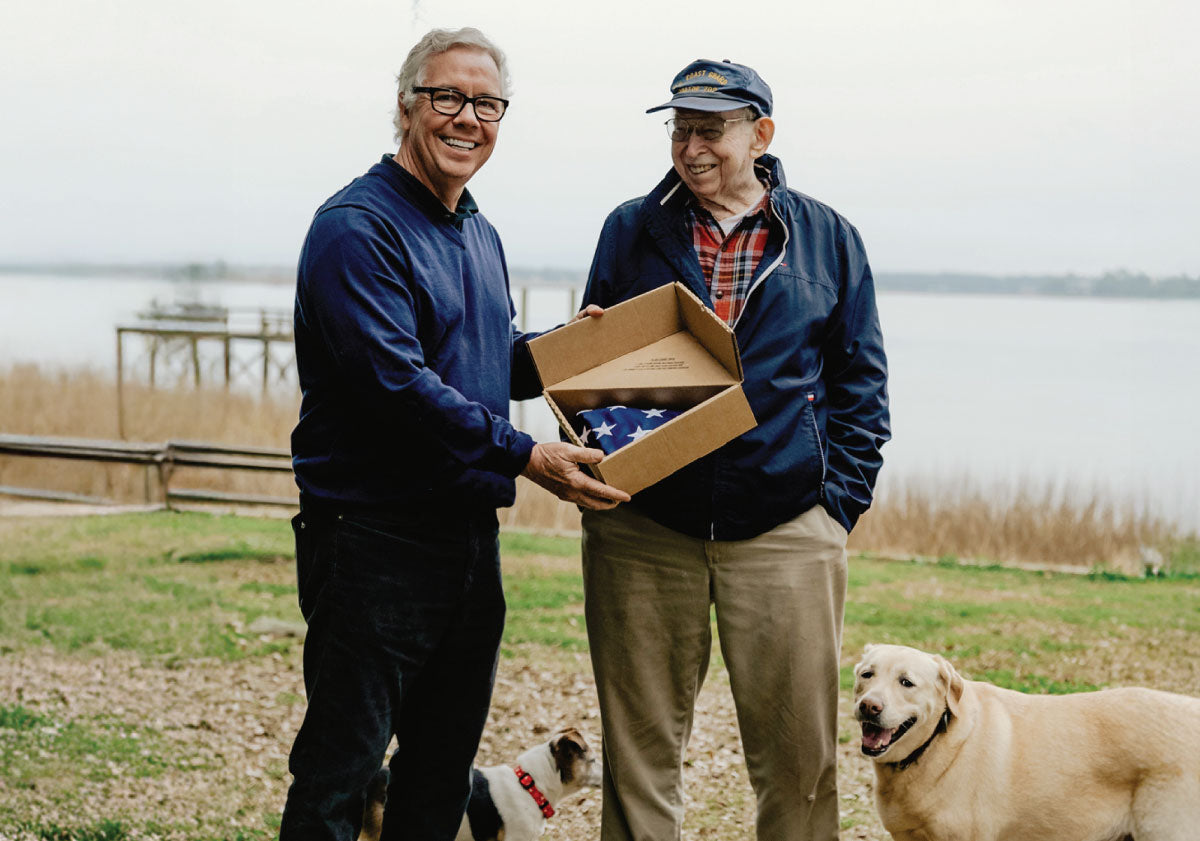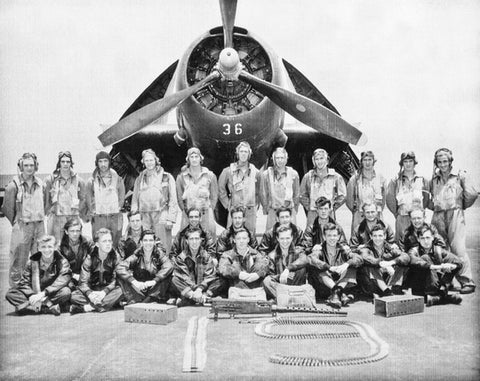December 3

1818
Illinois became the 21st state. Due to the challenge of the prairies slowing emigration into the region, the population was only about 35,000 and most of the prairie was still largely unsettled in 1818. Gradually, though, a few tough Illinois farmers took on the difficult task of plowing the prairie and discovered that the soil was far richer than they had expected. By 1840, the center of population in Illinois had shifted decisively to the north, and the once insignificant hamlet of Chicago rapidly became a bustling city. Increasingly recognized as one of the nation’s most fertile agricultural areas, the vast emptiness of the Illinois prairie was eagerly conquered by both pioneers and plows.

1947
Marlon Brando’s famous cry of “STELLA!” first boomed across a Broadway stage, electrifying the audience at the Ethel Barrymore Theatre during the first-ever performance of Tennessee Williams’ play A Streetcar Named Desire. The play shocked mid-century audiences with its frank depiction of sexuality and brutality onstage. When the curtain went down on opening night, there was a moment of stunned silence before the crowd erupted into a round of applause that lasted 30 minutes. Streetcar would go on for 855 performances and be adapted into an Academy Award winning feature film.

1989
Meeting off the coast of Malta, President George Bush and Soviet leader Mikhail Gorbachev issued statements strongly suggesting that the long-standing animosities at the core of the Cold War might be coming to an end. Despite the positive spin of the rhetoric, though, little of substance was accomplished during the summit. Both sides agreed to work toward a treaty dealing with long-range nuclear weapons and conventional arms in 1990. Gorbachev and Bush also agreed that another summit would take place in June 1990, in Washington, D.C.
December 4

1867
U.S. Department of Agriculture official Oliver Kelley gathered a group of farmers who became the founders of the Order of the Patrons of Husbandry, better known as the Grange. Members complained about the high rates charged by warehouses and railroads to handle their grain. They began to organize for state and federal controls over these pivotal economic issues. The Grange’s political activism resulted in "Granger Laws," which laid the groundwork for governmental controls over many big business industries, from meatpacking to drug making, on the grounds that governmental regulations were essential to protect the interests of all the people, not just farmers.


1991
Islamic militants in Lebanon released kidnapped American journalist Terry Anderson after 2,454 days in captivity. At the time, he was the longest-held American hostage in history. Anderson was AP’s bureau chief in Beirut and one of 92 foreigners (including 17 Americans) abducted during Lebanon’s bitter civil war. The kidnappings were linked to Hezbollah, or the Party of God, a militant Shiite Muslim organization formed in 1982 in reaction to Israel’s military presence in Lebanon. In 1999, he sued the Iranian government for $100 million, accusing it of sponsoring his kidnappers; he received a multi-million-dollar settlement.

1992
President George H.W. Bush ordered 28,000 U.S. troops to Somalia, where rival warlords were preventing the distribution of humanitarian aid to thousands of starving Somalis. Bush reassured Americans that “we will not stay one day longer than is absolutely necessary.” With the aid of U.S. military troops and forces from other nations, the U.N. succeeded in distributing desperately needed food to many starving Somalis. However, with factional fighting continuing unabated, and the U.N. without an effective agenda to resolve the political strife, there seemed no clear end in sight to Operation Restore Hope when President Bill Clinton took office in January 1993
December 5

1933
The 21st Amendment to the U.S. Constitution was ratified, repealing the 18th Amendment and bringing an end to the era of national prohibition of alcohol in America. At 5:32 p.m. EST, Utah became the 36th state to ratify the amendment, achieving the requisite three-fourths majority of states’ approval. Pennsylvania and Ohio had ratified it earlier in the day. Prohibition, failing fully to enforce sobriety and costing billions, rapidly lost popular support in the early 1930s. After the repeal of the 18th Amendment, some states continued Prohibition by maintaining statewide temperance laws. Mississippi, the last dry state in the Union, ended Prohibition in 1966.

1945
Five U.S. Navy Avenger torpedo-bombers comprising Flight 19 took off from the Ft. Lauderdale Naval Air Station in Florida on a routine three-hour training mission. Flight 19 was scheduled to take them due east for 120 miles, north for 73 miles, and then back over a final 120-mile leg that would return them to the naval base. They never returned. Although naval officials maintained that the remains of the six aircraft and 27 men were not found because stormy weather destroyed the evidence, the story of the “Lost Squadron” helped cement the legend of the Bermuda Triangle, an area of the Atlantic Ocean where ships and aircraft are said to disappear without a trace.

1984
Eddie Murphy starred as the wisecracking Detective Axel Foley in the action-comedy Beverly Hills Cop. The movie marked the first major starring role for Murphy, who went on to become one of the top-grossing actors in Hollywood. Born in Brooklyn, New York, Eddie Murphy rose to fame in the early 1980s on the TV sketch comedy show Saturday Night Live. As a regular cast member of the show from 1980 to 1984, Murphy became known for such memorable characters as Buckwheat, Gumby and an inner-city Mr. Rogers, as well as for his impersonations of celebrities, including Stevie Wonder. Beverly Hills Cop earned an Academy Award nomination for Best Original Screenplay and spawned the hit sequels Beverly Hills Cop II (1987) and Beverly Hills Cop III (1994).
December 6

1865
The 13th Amendment to the U.S. Constitution, officially ending the institution of slavery, was ratified. “Neither slavery nor involuntary servitude, except as a punishment for crime whereof the party shall have been duly convicted, shall exist within the United States, or any place subject to their jurisdiction.” With these words, the single greatest change wrought by the Civil War was officially noted in the Constitution. Abraham Lincoln believed that a constitutional amendment was necessary to ensure the end of slavery and his overwhelming presidential victory set in motion the events leading to its ratification. The House passed the measure in January 1865 and it was sent to the states. The institution of slavery effectively ceased to exist in the United States when the 13th Amendment was ratified by Georgia.

1884
In Washington, D.C., workers placed a nine-inch aluminum pyramid atop a tower of white marble, completing the construction of an impressive monument to the city’s namesake and the nation’s first president, George Washington. Made of some 36,000 blocks of marble and granite stacked 555 feet in the air, the Washington Monument was the tallest structure in the world at the time of its completion. A city law passed in 1910 restricted the height of new buildings to ensure that the monument will remain the tallest structure in Washington, D.C., a fitting tribute to the man known as the “Father of His Country.”


1961
Syracuse running back Ernie Davis became the first Black player to win the Heisman Trophy, college football's top individual award, beating Ohio State fullback Bob Ferguson. As a senior, Davis rushed for 823 yards and scored 14 touchdowns. The previous season, he rushed for 877 yards. Davis was the first pick in the 1962 NFL draft, by Washington, which traded him to the Cleveland Browns. But he never played in the NFL. Davis was diagnosed with leukemia later in 1962, and died on May 18, 1963. He was 23. “When I look back I can't call myself unlucky," Davis wrote in The Saturday Evening Post in March 1963. "My 23rd birthday was December 14. In these years I have had more than most people get in a lifetime."
December 7

1787
In Dover, Delaware, the U.S. Constitution is unanimously ratified by all 30 delegates to the Delaware Constitutional Convention, making Delaware the first state of the modern United States. Less than four months before, the Constitution was signed by 37 of the original 55 delegates to the Constitutional Convention meeting in Philadelphia. The Constitution was sent to the states for ratification, and, by the terms of the document, the Constitution would become binding once nine of the former 13 colonies had ratified the document. Delaware led the process, and on June 21, 1788, New Hampshire became the ninth state to ratify the Constitution, making federal democracy the law of the land. Government under the U.S. Constitution took effect on March 4, 1789.

1941
First Lady Eleanor Roosevelt spoke to the country about the attack on Pearl Harbor, the first public figure to do so. She let the nation in on what was going on in Washington at that moment on her scheduled weekly radio broadcast, Over Our Coffee Cups, and told listeners that although the United States had been thrust reluctantly into the war she was confident that “whatever is asked of [America] we shall accomplish it; we are the free and unconquerable people of the U.S.A.” It was an unprecedented moment for a First Lady—speaking to the people before her husband did, and setting the national tone with her attitude of sympathy and steadfastness.

2001
Ocean’s Eleven, a caper film featuring an all-star ensemble cast including George Clooney, Brad Pitt, Matt Damon, Bernie Mac, Don Cheadle, Andy Garcia and Julia Roberts, opened in theaters. Ocean’s Eleven was a remake of the 1960 film of the same name, which featured so-called “Rat Pack” actors Frank Sinatra, Dean Martin, Sammy Davis, Jr., Peter Lawford and Joey Bishop, along with Angie Dickinson. Directed by Steven Soderbergh, the film was a success at the box office and with critics; it was the fifth highest-grossing film of 2001, with a worldwide gross of $450 million. Soderbergh directed two sequels, Ocean's Twelve in 2004 and Ocean's Thirteen in 2007.
December 8

1941
As America’s Pacific fleet lay in ruins at Pearl Harbor, President Franklin Roosevelt requested, and received, a declaration of war against Japan. FDR walked haltingly into the House of Representatives at noon to request a declaration of war from the House and address the nation via radio. “Yesterday,” the president proclaimed, “December 7, 1941—a date which will live in infamy—the United States of America was suddenly and deliberately attacked by naval and air forces of the Empire of Japan. No matter how long it may take us to overcome this premeditated invasion, the American people in their righteous might will win through to absolute victory.”

1980
John Lennon, a former member of the Beatles, was shot and killed by an obsessed fan in New York City. The 40-year-old artist was entering his luxury Manhattan apartment building when Mark David Chapman shot him four times at close range with a .38-caliber revolver. Lennon died en route to the hospital. Psychiatrists deemed Chapman a borderline psychotic. He was instructed to plead insanity, but instead he pleaded guilty to murder. He was sentenced to 20 years to life. John Lennon is memorialized in “Strawberry Fields,” a section of Central Park across the street from the Dakota that Yoko Ono landscaped in honor of her husband.

1993
The North American Free Trade Agreement (NAFTA) was signed into law by President Bill Clinton. A trade pact between the United States, Canada and Mexico, NAFTA eliminated virtually all tariffs and trade restrictions between the three nations and created the world’s largest free-trade zone. The passage of NAFTA was one of Clinton’s first major victories as the first Democratic president in 12 years—though the movement for free trade in North America had begun as a Republican initiative. It was inaugurated by his Republican predecessor, George H.W. Bush, who signed the initial version of the treaty in December 1992. Clinton campaigned for changes to the deal and sought side agreements requiring Mexico to enforce labor standards, improve working conditions and create better environmental safeguards.
December 9


1965
A Charlie Brown Christmas, the first TV special based on Charles M. Schulz's comic strip Peanuts, premiered on CBS. The special received high ratings and acclaim from critics. It has since been honored with an Emmy and a Peabody Award and is now an annual presentation in the United States, airing on broadcast television during the Christmas season. The original airing of the special contained numerous differences from the more commonly known revised 1966 print that is still shown today. According to the book A Charlie Brown Christmas: The Making of a Tradition, the studio went back the following year to revise the special more due to its original rushed production leaving various errors and the lack of music in some scenes.

1983
Starring Al Pacino, Scarface opened in theaters. Pacino plays Tony Montana, a Cuban refugee who arrives in Florida in 1980 and eventually becomes wealthy as a crime boss. Directed by Brian De Palma from a screenplay by Oliver Stone, Scarface co-starred Michelle Pfeiffer, Steven Bauer, Mary Elizabeth Mastrantonio and Robert Loggia. The film was loosely based on a 1932 gangster film of the same name and reportedly inspired in part by the real-life mobster Al “Scarface” Capone. Though De Palma’s Scarface received mixed reviews upon its initial release and was criticized for its violence, it proved to be a success at the box-office and went on to achieve pop-culture status.

1934
The New York Giants won the NFL championship by beating the Chicago Bears, 30-13, in the famous "Sneakers Game." With the temperature at 9 degrees and the Polo Grounds field a sheet of ice, the Giants opened the second half wearing basketball shoes because their cleats would not hold onto the field. The Giants scored 27 points in the final quarter to overcome a 13-3 Chicago lead. "Right away, we sensed something was wrong because they had good footing," Bears legend Bronko Nagurski told NFL Films decades later, "and we didn't have good footing... they just outsmarted us I guess. It was legal." In 1956, New York beat Chicago again in the NFL Championship Game. Again, the Giants wore sneakers to adjust to the field conditions.






